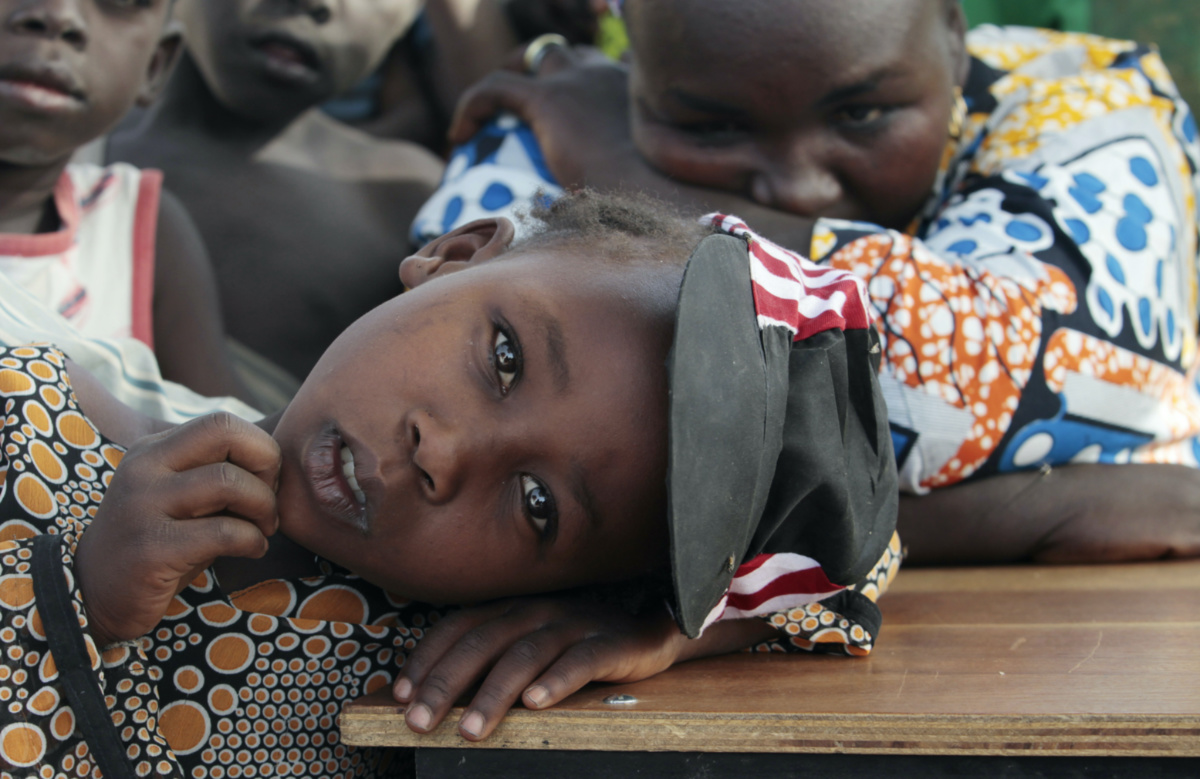
PETA MCCARTNEY speaks to three Christian women leaders in Australia – Clare Steele, CEO of Compassion Australia, Melissa Lipsett, CEO of Bapist World Aid Australia and Sharon Hollis, president of the Uniting Church in Australia – about the challenges females are facing around the world…
“Before COVID-19 there were 130 million girls that were out of school and then, by the end of 2020, that had increased by 11 million girls,” says Clare Steele, CEO of Compassion Australia. “We don’t actually know the figures now [at this point in time]…”
The challenges surrounding the access of girls to education is one of the key issues women and girls all around the globe are still facing this International Women’s Day. It’s interlaced with many of the other issues which Australian Christian women leaders say, despite the huge gains that have been made, are still keeping too many females entrenched in poverty and oppression.

A girl displaced as a result of Boko Haram attack in the north-east region of Nigeria, rests her head on a desk at Maikohi secondary school camp for internally displaced persons in Yola, Adamawa State, on 13th January, 2015. PICTURE: Reuters/Afolabi Sotunde.
Steele, who became CEO of Compassion Australia in 2020, says that girls as young as nine are continuing to face forced marriage in some countries, a problem that has only worsened as families struggle to earn enough money to survive during the COVID-19 pandemic.
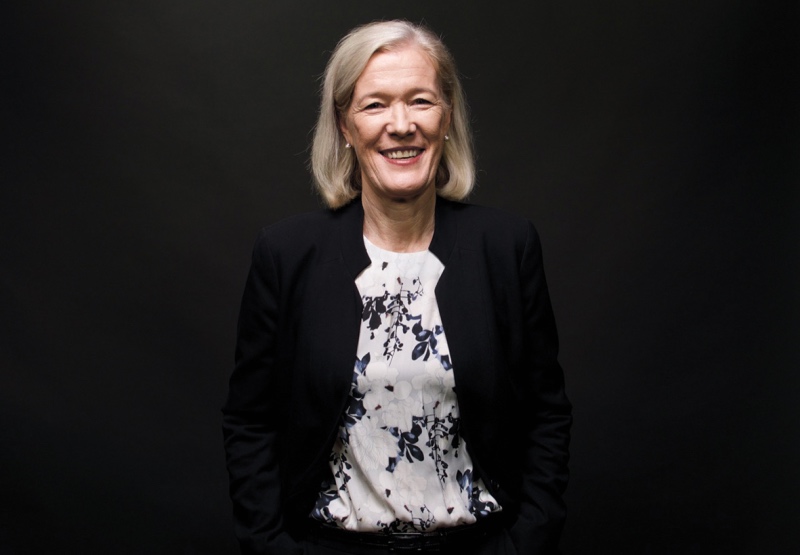
Melissa Lipsett, CEO of Baptist World Aid Australia. PICTURE: Courtesy of Baptist World Aid Australia.
“That hasn’t happened because I am a woman CEO, but it has happened because [I think] a woman CEO recognises [and] is drawn to the data, to the research around investing the incredible value in investing in women across the globe.”
– Melissa Lipsett, CEO of Baptist World Aid Australia, speaking in reference to the fact women and children are one of the major planks of the organisation’s new strategic plan.
Women and girls are also being trafficked or face lives in slavery, a problem which was also on the rise during the pandemic. Figures show that 71 per cent of all trafficking victims are female, “including young girls”.
All of which impacts girls’ access to access – as does a lack of money for sanitary products which also sees millions of girls around the world being forced to miss school every month.
“When you don’t have access to a toilet or sanitary supplies, it means you may miss a week of school every month…that means you stay close to home; you don’t want to go out; it really limits what you can do,” Steele says.
Education for girls in developing nations is also a high priority for Melissa Lipsett, the first female CEO of Baptist World Aid Australia in its 63-year history. She is unapologetic for making women and children one of the major planks of the organisation’s new strategic plan.
“We’ve never named that as a focus before and we think that’s really important,” Lipsett said.
“That hasn’t happened because I am a woman CEO, but it has happened because [I think] a woman CEO recognises [and] is drawn to the data, to the research around investing the incredible value in investing in women across the globe.”
She says research shows there is a huge imbalance in investment for girls’ and women’s education around the world, but if investment increased, “the benefits for our world would be wide ranging – huge”.
“We know that when we invest in education we get better outcomes in terms of economic growth, you get reduced rates of infant and maternal mortality, you get reduced rates of child marriage, increased agricultural activity, increased resilience to natural disasters even. That is what the research tells us, so it’s very clear that the world should be investing in girls’ education, but it’s not.”
We rely on our readers to fund Sight's work - become a financial supporter today!
For more information, head to our Subscriber's page.
Lipsett says another impact of COVID-19 on women and girls around the world in the past few years was the increased risk of family violence.
“In fact, we call that the ‘shadow pandemic’ that nobody is talking about. Somewhere around 250 million women and girls around the world will have experienced sexual or physical violence some time this year alone from an intimate partner. That’s a shadow pandemic.
“So girls who are not at school are subject to increased rates of violence, child marriage, child slave labour, trafficking, early childbirth. We know that somewhere around 50 per cent of those girls who have left school during the pandemic won’t ever return to school and it is absolutely a shadow pandemic all on its own.”
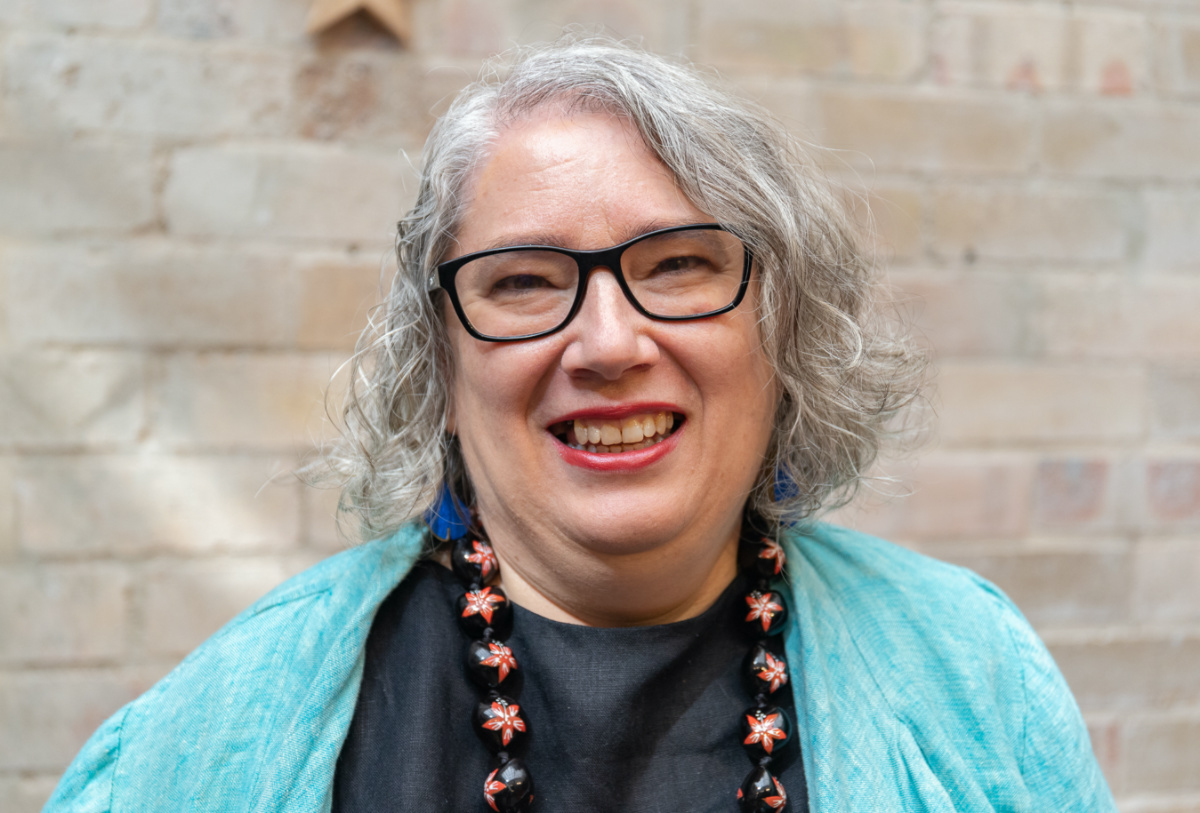
Sharon Hollis, president of the Uniting Church in Australia. PICTURE: Courtesy of the Uniting Church in Australia
Sharon Hollis, president of the Uniting Church in Australia – a role she has held since July, 2021, also speaks about the devastating impact of family violence as something that needs to be addressed.
“The scourge of family violence, which does impact mostly on women and other people who are gender diverse, is terrible,” Hollis says.
“It’s as much in the church as it is in [general] society and I think we have to keep working at gender inclusion because that’s one of the key things that will help address family violence and I think that’s got to be one of the next things always before us – at the forefront – is: what in our life, what in our structures, what in the way we speak of God and of each other, makes violence possible.”
While women across the world are celebrating their achievements on 8th March – of voting rights, education and employment opportunities, increasing wages, parental support and recognition in sport and politics, to name a few, Australian Christian women leaders, in interviews with Sight, were also keen to address what it means to work alongside men to achieve God’s plan for humanity.
Lipsett “absolutely” believes in what she called “mutual flourishing” of men and women, while also calling for the dismantling of systems dominated by men that prevent women from achieving their rightful place alongside them.
“Absolutely, I believe in mutual flourishing,” she says. “I don’t believe that women should rise by pushing men down. But the same can’t be said [in reverse] because that’s what’s happened to women – that women have been pushed down to allow men to flourish. When a woman is allowed to flourish, I don’t see her pushing down men to do that.”
She says that in Proverbs 31, the woman flourishes, but her husband flourishes alongside her, “so there are very strong Biblical examples of women flourishing and men flourishing beside them”.
However, it was a “reality” that the structures and systems currently in place “allow men to flourish and allow women’s voices to be silenced”.
Those systems “have to be dismantled and they have to be dismantled by those who are in power, by those who control those systems and those systems are overwhelmingly controlled by men”.
“It’s an extraordinarily difficult situation because you’ve got the powers and structures being managed by men and maintained by men. Then you’ve got this overlay that this is what the Bible tells us to do and I think that’s plain wrong.
“It is about empowering women’s voices. It’s about empowering their God-given gifts and graces, not just for their own sake, can I say, but for the sake of the world.
“I believe our world, our families, our communities, our country and our world needs women’s gifts to be put to work, to flourish in the way God intended for them to. We need every Christian to make the full contribution that God has planned for them. God has gifted and graced women and they’re not being able to use those for the sake of the world, and our world is all the poorer. Our families are poorer, our churches are poorer, our communities are poorer, the world is poorer when we don’t empower women to use their God-given gifts and graces.”
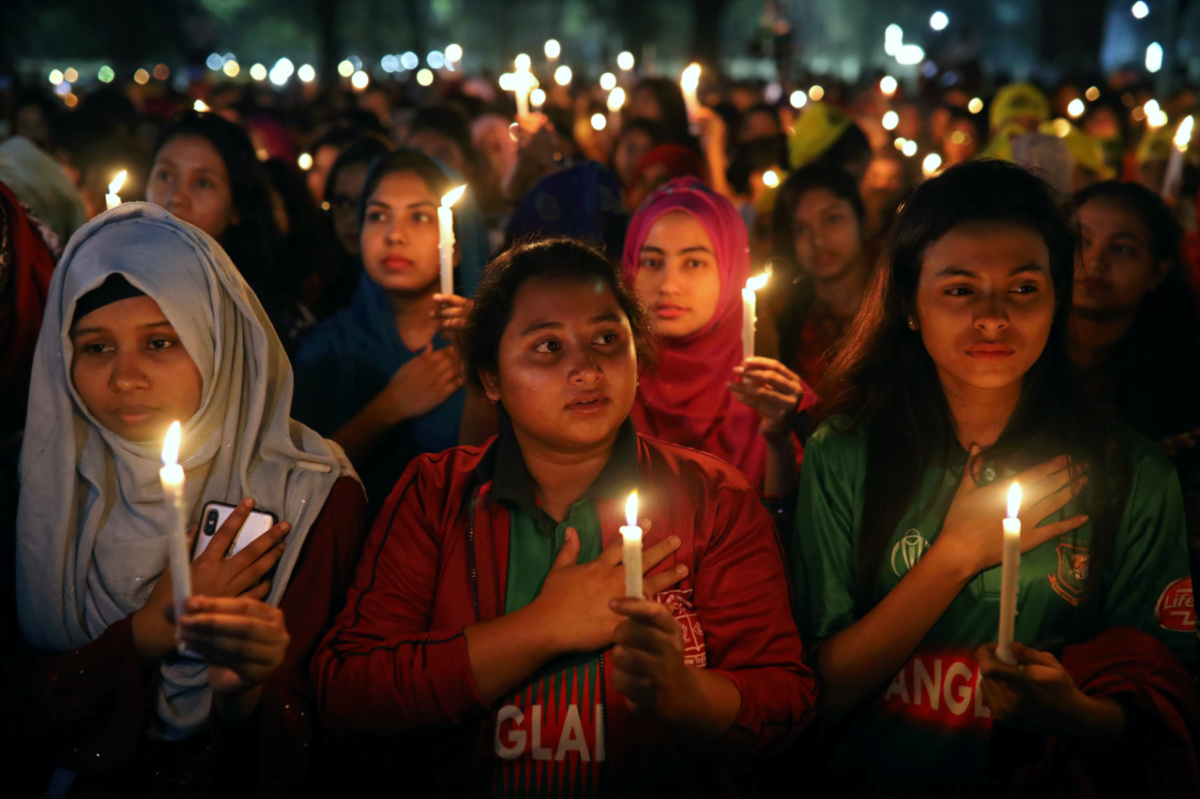
Women from different organisations light candles to mark the International Women’s Day in Dhaka, Bangladesh, on 8th March, 2020. PICTURE: Reuters/Mohammad Ponir Hossain/File photo.
Steele says women in Australia and overseas have “such beautiful vision” of how the world could be.
“I’m not saying men don’t, but I think sometimes the voices of women get lost and I would love to see the world created by both men and women, sharing their visions. It would be so much deeper and wider than we can do on our own.”
Speaking of her own journey, Hollis says the progress of women’s achievements and those who have fought for women’s rights and equality before her had allowed her to aspire to and take on many leadership roles within the church and many men are supportive, but people still think of the church as a place where women aren’t welcome.
“I think as women we’ve also had the support of many supportive men who’ve fought for the inclusion of women and I want to honour them as well”, but the mindset of some people about women’s abilities to exercise leadership “can limit what people think you can do and be”.
“I was ordained in the 1990s, and it never occurred to me that I couldn’t be ordained. I never had to stop and think ‘is this going to be a problem because I am a woman’? So I have been ordained nearly 30 years and I have never been in a role where I was the first woman. I think that says something about the fact that we have had women engaged in the life of the church for a long time.”
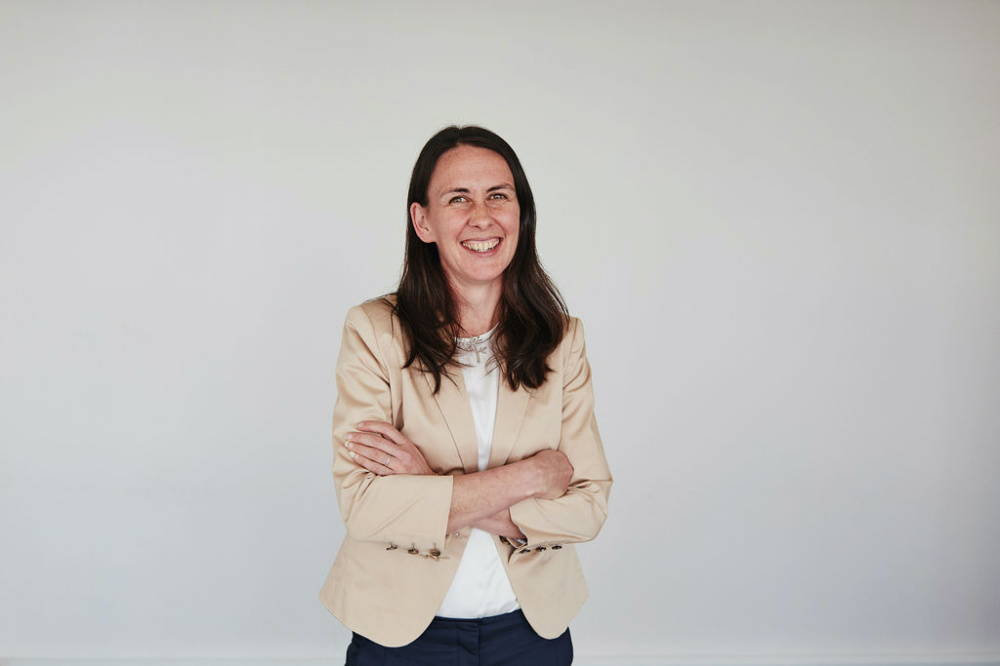
Clare Steele, CEO of Compassion Australia. PICTURE: Courtesy of Compassion Australia.
All three women agree that their leadership positions allow them to drive the vision for better equality for women and girls, but Lipsett says women often have to fight external and internal battles to achieve.
“We talk about barriers to equality and barriers to women using their God-given gifts and graces. There are very few barriers for men in using the gifts and graces that God has given them,” she says.
Among external barriers were sexism and discrimination and sexual harassment, inflexible workplaces, and lack of access to childcare, meaning fewer opportunities for women. She also mentions a lack of female role models or mentors as sponsors, and “a lack of spaces for us to build and practice our skills”.
“And then we talk about internal barriers – women lack self confidence, we’re fearful of not being liked, we’re fearful of making the wrong choice, attracting negative attention, of overreach, of being judged, of failure. We have what I call ‘the Holy Trinity of fear’: the fear of being a bad mother, wife and daughter. I often say to women, ‘ask yourself, what would you do if you weren’t afraid?’
“Women don’t raise their hands, or only do so compliantly, and when there are opportunities we tend to pull back, rather than lean in. We lack confidence of being in the room or at the table and women internalise negative messages: that it’s wrong to be outspoken, or aggressive, or powerful. Power is considered to be an attribute in men but not in women, so we have much lower expectations of what we can achieve.”
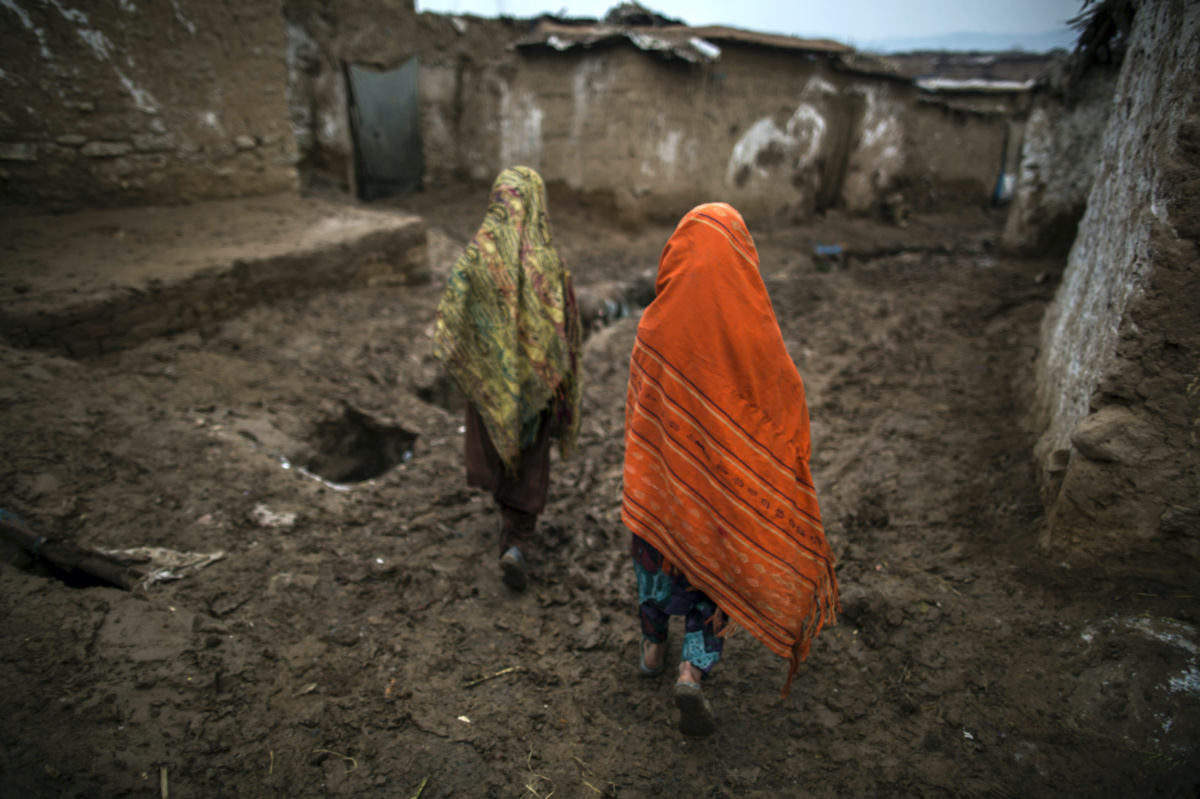
Girls walk on a muddy lane towards their house in a slum on the outskirts of Islamabad, on 4th February, 2014. PICTURE: Reuters/Zohra Bensemra.
Steele also says women often are scared to take risks and to to step out “in case we fail”. She said statistics show that women, in applying for a job, will make sure that they can do 150 per cent of the job description, “whereas men will look and go ‘oh yeah, it sounds like me’ and apply”.
“I think we have to start taking those risks.”
Hollis talks about about the achievements of women within the Uniting Church which has been ordaining women in its predecessor traditions since 1927, but notes that “you’ve got to keep being alert”.
“You can’t just say, ‘well, we’ve got no more barriers so that’s all good’. We [women] still have a lot of informal barriers and we still have a lot of work to do around how we speak and think about other humans, but also about God.”






